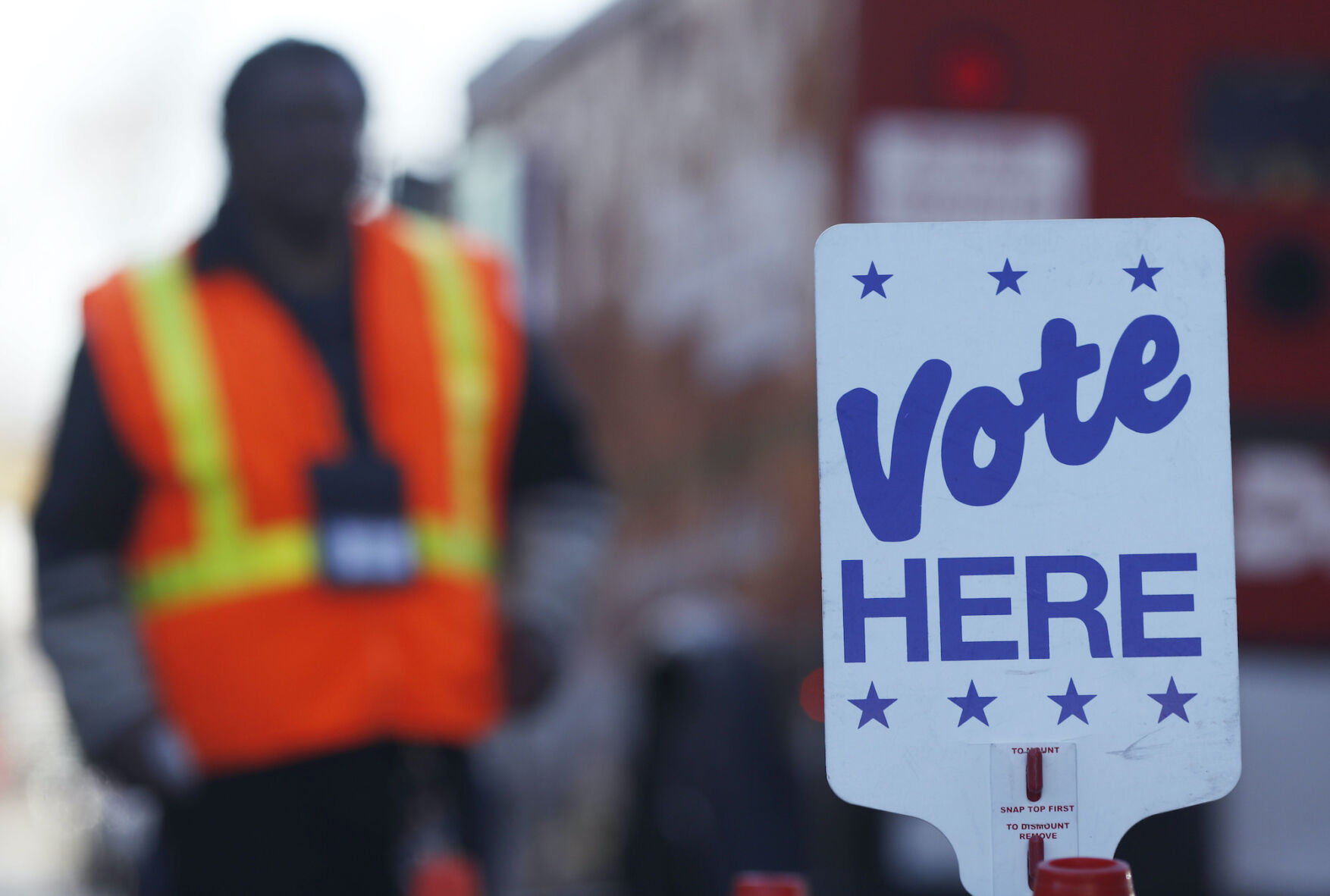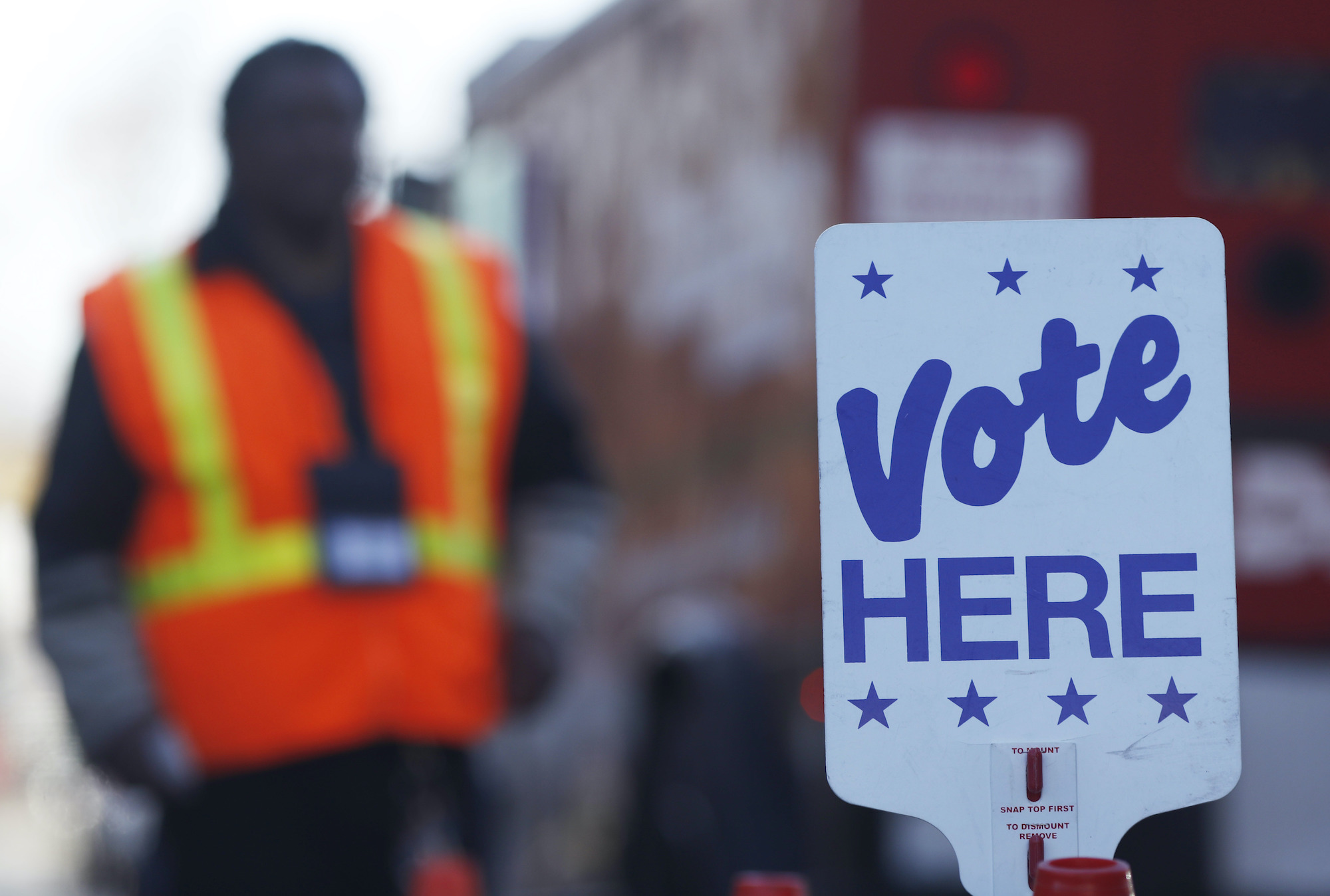Colorado Republicans file lawsuit to prevent unaffiliated voters from participating in state primaries

The Colorado Republican Party filed a federal lawsuit Monday in Denver seeking to overturn a state law approved by voters in 2016 that lets unaffiliated voters participate in primary elections.
The lawsuit alleges that Proposition 108, which passed with 53% of the vote, is unconstitutional on multiple grounds, arguing that the semi-open primary system it established infringes on the GOP’s rights under the First and 14th amendments to choose nominees to the general election ballot.
If the lawsuit succeeds, it would prevent unaffiliated voters – who make up nearly half of the state’s electorate – from voting in either Republican or Democratic primaries, as they’ve been able to do since 2018.
Filed in U.S. District Court for the District of Colorado, the lawsuit names Colorado Secretary of State Jena Griswold, a Democrat, as the defendant in her official capacity as administrator of state elections.
The state GOP is asking the court to declare the initiative unconstitutional and issue an injunction prohibiting Griswold and other state and county election officials from enforcing the law ahead of next year’s June 24 primary.
“The current unconstitutional open primary scheme allows for Democrats, and other leftwing groups, to interfere in our primary nomination outcomes so they can weaken our general election prospects,” said state GOP Chairman Dave Williams in a fundraising email sent on Tuesday to Republican supporters.
Insisting that unaffiliated votes who want to “have a say in selecting our nominees” are welcome to register as Republicans, Williams added: “[B]ut we will not stand idly by as radical leftwing organizations use an unconstitutional law to further harm our election efforts.”
Unaffiliated voters account for 47% of the state’s electorate, with Democrats making up 27% and Republicans coming in at just under 24%. Both major parties have seen their share of the electorate decline dramatically since a decade ago, when each group comprised roughly one-third of registered voters.
The lawsuit filed this week is similar to one filed a year ago by a group of GOP candidates, who made nearly identical arguments. A federal judge dismissed that complaint, ruling that the plaintiffs lacked standing, in part because the state GOP hadn’t signed on and didn’t file a supporting brief.
Members of the state GOP’s central committee authorized the party to file its own lawsuit in March, at the same meeting where they elected Williams to head the party.
Williams told Colorado Politics that the party raised the $25,000 needed to “get the ball rolling” but will need to raise more to see the lawsuit through to its completion.
Griswold said in a statement that she’s prepared to defend against the lawsuit.
“The court dismissed the prior lawsuit and we continue to believe the new lawsuit has no merit,” Griswold said. “As Secretary of State, I will always stand up for voters to ensure that their constitutional right to cast a ballot is protected.”
Lawyer John Eastman, a former visiting scholar of conservative thought at the University of Colorado in Boulder, represented the GOP candidates in last year’s lawsuit and is one of the Colorado Republican Party’s attorneys in the new complaint.
A one-time top legal advisor to former President Donald Trump, Eastman appeared as an unnamed “co-conspirator” in a criminal indictment handed down Tuesday alleging that Trump tried to overturn the results of the 2020 election. Eastman, who was not indicted, is facing potential disbarment in California on allegations he drew up the legal blueprint to prevent Congress from counting legitimate electoral votes from some states.
The other lead attorney representing the Colorado GOP is Randy Corporon, one of two Coloradans elected by the party to sit on the Republican National Committee.
State GOP leaders have sought to block unaffiliated voters from voting in GOP primaries since the ballot measure passed, under an “opt-out” provision in the law. Previous efforts to withdraw from the primary and instead nominate Republican candidates through the assembly process, however, have fallen far short of the required three-fourths of the party’s state central committee.
Williams plans to ask party officials to vote on the proposal again in late September after first considering a bylaws amendment this weekend that would make it easier to meet the threshold. Under that proposal, which has generated fierce opposition from some Republicans, members of the central committee who don’t vote on the question would be counted as “yes” votes in favor of canceling the primary.
The lawsuit filed Tuesday also argues that the measure’s “opt-out” provision sets an unreasonably high requirement that effectively makes it impossible for Colorado’s major parties to do anything but allow unaffiliated voters to cast ballots in their primaries.
Williams and other Colorado Republicans blame the state’s primary system for their candidates’ recent string of losses, which have left the GOP with less power statewide than at any time since the 1930s.
The lawsuit makes the same argument, drawing a parallel between deteriorating Republican performances at the ballot box and increasing participation by unaffiliated voters in GOP primaries.
Shad Murib, the state’s Democratic Party chairman, describes it differently.
“The Colorado Republican Party continues to be at odds with Colorado voters,” Murib told Colorado Politics. “This attempt to shut off access to the primary – and hiring John Eastman as your lawyer – show me that the MAGA extremists running the Colorado GOP are not necessarily the biggest fans of democracy, and that should trouble folks.”
Added Murib: “The Democratic Party is a big tent, and we welcome the input of unaffiliated voters. It’s not Prop 108’s fault that Republicans are suffering historic losses, it’s that they’re dangerously out of step with Colorado voters.”













